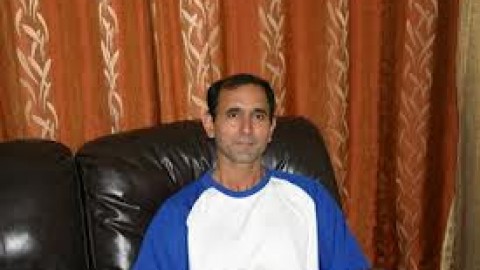Bestselling author of two unique fictions – Dolmens In The Blue Mountain and Wisdom Of The White Mountain, Mr Kandathil Sebastian interacted with Spectralhues about his two bestselling novels, their catchy titles, his passion for writing, current projects and the third book of the Mountain trilogy.
What made you come up with such catchy titles?
I think my titles, most appropriately explain what is there inside my books. I agree with one of my readers who said that ‘Blue Mountain’ symbolizes the ‘web of life’ which we as human beings need to preserve at any cost. Dolme ns in the Blue Mountain is set in the context of the magical phenomenon of flowering of Strobilanthes plants once in twelve years, during which Western Ghats mountain ranges are mysteriously metamorphosed into a paradise filled with millions of blue flowers.
ns in the Blue Mountain is set in the context of the magical phenomenon of flowering of Strobilanthes plants once in twelve years, during which Western Ghats mountain ranges are mysteriously metamorphosed into a paradise filled with millions of blue flowers.
Dolmens are ancient graveyards which reminds us the ‘inevitability of death and destruction’ and the essential merging of all of us with the nature and God.
Similarly, in my second book – Wisdom of the White Mountain, the protagonist attains self-actualization and earns ultimate knowledge in the white Himalayan Mountains after an encounter with Lord Shiva.
Both of these novels also show a mirror to the contemporary socio-political realities in the backdrop of unbiased discourses around ecology, mythology and aboriginal interpretations about life and death.
What are your ambitions for your writing career ahead?
I neither own a ‘novel factory’ in my mind, nor race to quantitatively increase my creative outputs. I definitely would like to come up with a few more quality fiction products – short stories, novels and if possible a book on my own genuine memories of life.
My aim is to reach as many readers as possible with my creations and with that objective in mind, I don’t mind promoting my own books in as many possible forums as possible. All creative ideas and products need promotions.
Some authors are lucky to have plenty of social and economic capital at their disposal and their books easily reach many readers. Authors like me who does not have much of these may struggle in the beginning, as I am doing right now. But I do believe in my books and its right destiny. It will definitely reach where it really should!
Your first book (Dolmens in the Blue Mountain) follows the lives of three brothers. Give us an insight into your main character.
Most of my characters belong to the places where I lived or where I have been to. I have interacted with many of them at some point of my life. They might have deeply provoked, inspired or influenced me at some stage of my life.
The three brothers in Dolmens in the Blue Mountain emerge from real life, though they are not hundred percent real. I have used my imagination to re-create them as characters in a plot who could communicate to my readers. The journey of the three brothers started from a village in Kerala. One of them went to Canada to become an entrepreneur. The second one became a researcher in Delhi. The third brother settled down as a farmer in the Western Ghats in Kerala. The story revolves around their life’s dilemmas, choices, compromises and assertions.
The book also captures life of its characters in three different contexts namely life of a research scholar in Delhi’s Jawaharlal Nehru University, life of an aspiring priest in a seminary in Jabalpur and also te life of an agrarian entrepreneur in a forest area where Maoism emerges as an ideology of resistance and survival for the tribes.
 We have so many genres these days. Which genres do your books belong to?
We have so many genres these days. Which genres do your books belong to?
I have never written anything to fit in any genre or subgenre. I let my imagination go wild with my own experiences and memories. I wanted to share certain ideas and thoughts with a wider audience for which I thought a fiction will give me more freedom than a biography. Fictions are often more authentic than sponsored research studies done with agendas. It was a surprise for me when vendors classified Dolmens in the Blue Mountain in the subgenre of ‘cultural heritage’, and Wisdom of the White Mountain as ‘suspense thriller.
What drove you to write ‘Dolmens in the blue mountain’?
Dolmens in the Blue Mountain is my first novel. Like that of most writers, my first book was also influenced by my own life experiences. Many people could see me and my family in it. Let me also admit that 80% of the story has been extrapolated from my own life. The driving force behind writing this book was nothing but my determination and desire to contribute to the cultural and political life of my time.
I also wanted to influence my reader’s minds and also thought of prompting changes in attitudes and mindsets about many of the things we all unknowingly approach with a prejudiced mindset, say our mindsets about a ‘terrorist’ or a ‘Maoist’. The same mindsets are present while we approach larger questions about ‘life’ and ‘death’. My books are humble attempts to challenge such mindsets.
Your book divulges into the struggle of the tribal people in the Western Ghats. Do you think India as a country is doing enough for the tribal communities in the country?
Ensuring t rights and offering a dignified life for tribes in India should have been done in the first decade of India’s independence itself. It is a shame and tragedy that we could not do that even today. Many of them, unfortunately became ecological refugees in their homelands.
I have serious questions about the development path we have adopted since independence. Are we ready to change the way we approach ‘development’ now? ‘What kind of development’ ‘for whom’? All the tribesmen and women who protected and preserved our nature along with their traditional knowledge are being extinct; their voices are being unheard and silenced. Entire mountains are being disappeared from the face of the earth, thanks to excessive mining and quarrying! Excessive production, wasteful consumption and waste accumulation has become the DNA of our generation!
How much research do you do for precisely putting down things in your book?
To write a fiction, one should do only minimum research. If you have to do a lot of research to write a fiction or poem, we must never attempt writing. Fictions, like poems should emerge spontaneously. I am an ardent fan of Bukowski, who advised the following wisdom to all aspiring authors: “if it doesn’t come bursting out of you, unless it comes unasked out of your heart and your mind and your mouth and your gut, don’t do it.”
Have you done any collaborations with other authors? Do you plan to do so in the future?
Not yet, but I am happy to do that if I discover a compatible writing pal.
How have readers reacted to the books?
Most of my readers send me very encouraging feedback. Some of them compared me with some of the great authors of our time. Some told me that my book impacted their life and thought processes. That is the greatest reward a writer can ever yearn in his life.
It does not mean that you get only complements and appreciations. Some of the readers pointed out mistakes and gave me advice to improve. There were also some jealous people who indulged in destructive criticism as they did not like my doing something which they could not, despite their elite brought up and modern education contrary to my humble origin and training. God was kind enough to make me distinguish all kinds of criticisms and appreciations and protected me from getting carried away with the joys of minor accomplishments.
What are you working on presently?
I am working on a collection of short stories now. These stories are also about moments, people and places which ignited my imagination at some point of time in my life. Simultaneously, I am giving final touches to my third book in the Mountain Trilogy series.
Tags: Kandathil Sebastian Mountain Trilogy








